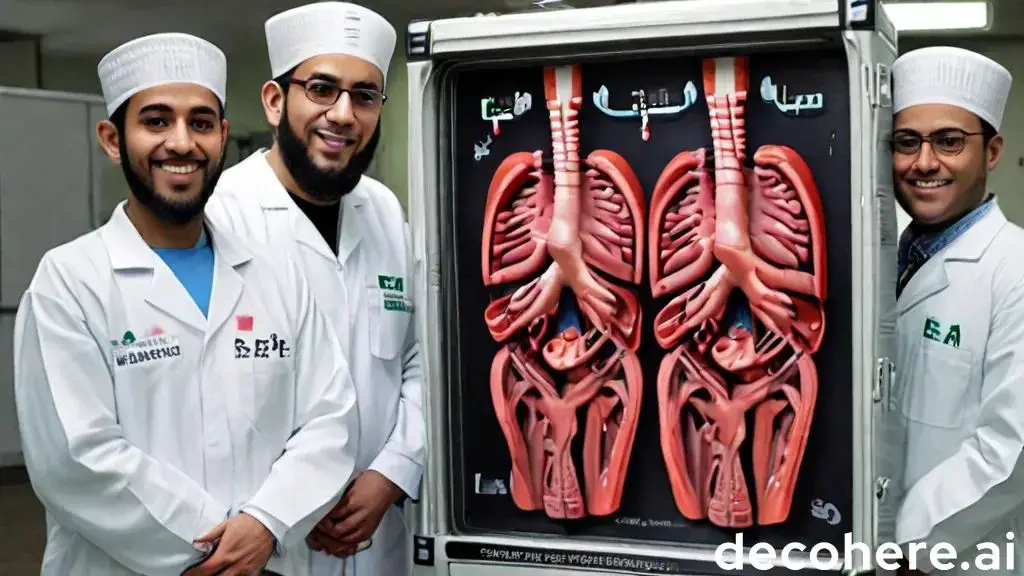
As advancements continue in the field of medicine, the organ donation of human organs has proven to be a blessing for all of humanity in saving lives and improving health. Experts say that the organs from one donor can save or help up to 50 people. These donations are usually taken after the donor’s death, but some organs and tissues can also be donated while still alive, without any negative impact on the donor’s health. People of all ages and backgrounds can partake in this compassionate and humanitarian act. However, for Muslims, the question of whether this act aligns with Islamic principles remains a significant topic of discussion and debate. The most interesting aspect is that Muslims have no objection to receiving an organ transplant when needed, but they refrain from donating. Here, it’s hard to understand how something permissible to receive can be forbidden to give.
In Islam, whenever this topic arises, the discussion immediately shifts to what is halal (permissible) and what is haram (forbidden). Our old blunders of not keeping pace with time has repeatedly caused us to lag behind, merely watching the dust of the caravans ahead, unable even to touch the speed of progress. In 1440, when the printing press was invented in Germany, the Muslim Ummah was under the Ottoman Empire. At that time, the Sheikh-ul-Islam issued a fatwa declaring the use of the printing press as impermissible. As a result, the knowledge of Greek civilization, which had been preserved by the Arabs through Arabic translations, including books on philosophy and other sciences, inventions, and discoveries, made its way to Europe through the backdoor, where it was printed on the so-called impermissible printing presses and spread throughout the world under different names. Imagine if the Sheikh-ul-Islam had not issued that foolish fatwa, where would we stand today? After all, today, don’t we read printed Qurans and printed Hadith books? Such fatwas were also issued regarding the permissibility of blood donation, the use of loudspeakers, and the use of pump sets. Thankfully, today, the Muslim Ummah has reached a consensus on these issues.

Understanding Islamic Rulings on Organ Donation
Today, those opposing organ donation argue that there is no mention of it in the Hadith books and that no permission for it is found in the Quran. Now, how can an non practicing person like me explain to these scholars that the Hadith books only mention issues, situations, and events that occurred during the time of Prophet Muhammad (PBUH)? The use of printing presses, loudspeakers, and pump sets was not permitted or mentioned in the Quran and Hadith either. So, should we consider modern education methods, irrigation systems, and the Azans being given in mosques as haram? As for the Quran, it contains all the indications, and if we study it with insight rather than just sight, we can find guidance for living until the Day of Judgment.
The Quran’s Surah Al-Ma’idah, verse 32, states, “And whoever saves a life, it is as if he has saved all of humanity.” If someone cannot see the permission for organ donation in this verse, I am astonished.
Amid these opposing voices, in recent years, several Islamic scholars and institutions have issued fatwas in favor of organ donation. In 1988, the ‘Islamic Fiqh Academy’ issued a fatwa stating that organ donation is permissible with the donor and their family’s consent, especially to save someone’s life. Scholars from Al-Azhar University have also supported it under the same conditions. Similarly, the Muslim Shariah Council in the UK has permitted it and has even suggested that it should be promoted as a form of charity since anything beneficial to others even after death falls under the category of ‘Sadaqah Jariyah’ (ongoing charity). Some voices in favor of this practice are also emerging from Indian scholars, slowly making their impact.
Can Muslims Donate Organs? Is it Haram to be an Organ Donor?
One of the significant voices in favor of organ donation was that of renowned Islamic scholar Maulana Wahiduddin Khan, who extensively wrote on this subject. Maulana believed that not only is it permissible in Islam, but it is also a great act of kindness. He also viewed it as ‘Sadaqah Jariyah.’ Another respected Islamic scholar, Allama Syed Tariq Abdullah, while acknowledging the ethical complexities surrounding it, supports organ donation within the boundaries of Islamic ethics. He emphasizes that the process should be carried out with complete transparency, respecting the donor’s wishes, and ensuring that the donation benefits those in need with full integrity, without it becoming a commercial activity. He is running a nationwide campaign to promote organ donation. The encouraging part is that Muslims are increasingly responding positively to his call. Tariq Abdullah’s perspective reflects the growing consensus among Islamic scholars on this matter.
The debate over organ donation continues within the Islamic community. Many scholars agree that when done according to Islamic guidelines, it is a benevolent and compassionate act that aligns with Islamic values such as compassion, generosity, and humanity. On the other hand, there are still scholars who oppose it by labeling it as ‘Muthla’ (mutilation of the body). Muthla refers to the inhumane practice during war where enemies’ bodies were trampled by horses. Moderate Islamic scholars argue that this comparison is not accurate, as the difference between organ donation and muthla lies in the intention and purpose.

Ultimately, this is a highly personal decision. For Muslims, it is important to seek guidance from knowledgeable scholars and contribute to the service of humanity. Islamic moral teachings indeed emphasize fostering compassion for others in our hearts. As Allama Iqbal said, God created humans for this very purpose; otherwise, angels would have sufficed for worship. If anyone is still stuck in the conflict between this need of the hour and their faith, I would like to end my argument with one last point. It is true that organ donation is not mentioned in the Quran or Hadith, but we do believe in the tradition that Eve was created from Adam’s left rib. So, what Allah has done himself, it should not be unacceptable for the believers.
E-mail: mmkamalee@gmail.com
